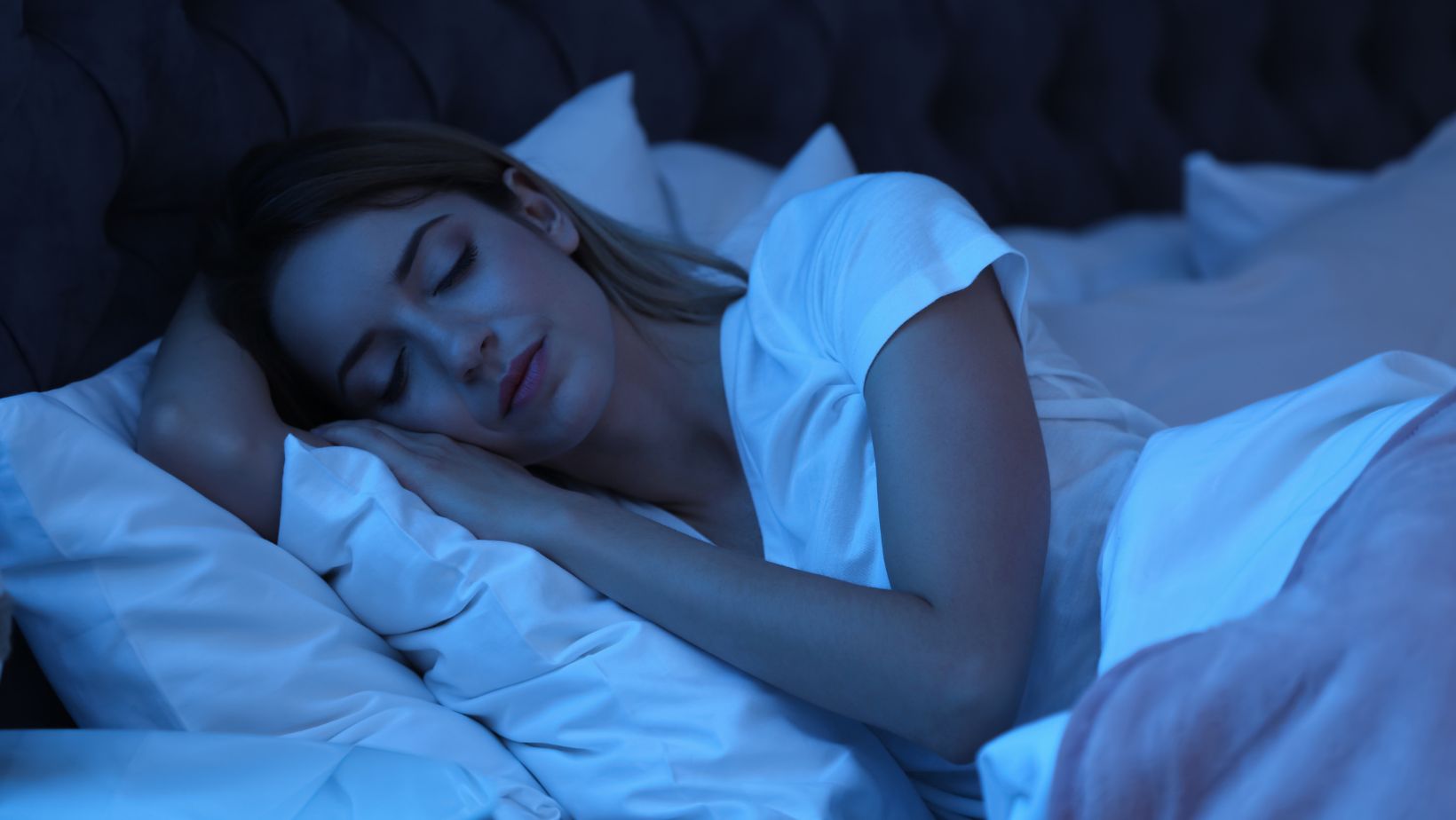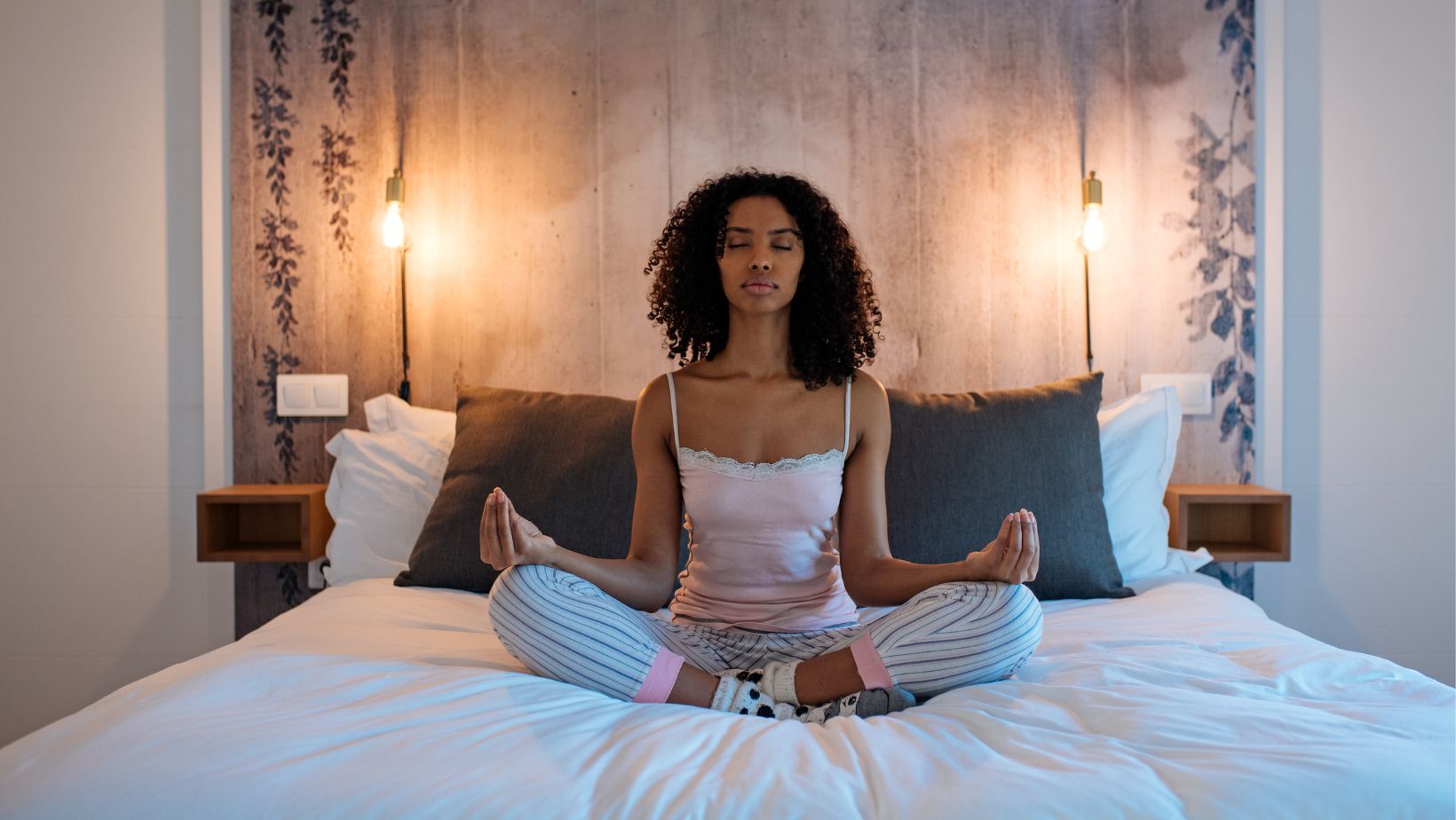
Do you struggle with anxiety disorder and never seem to get a good night’s rest? You’re not alone. Millions of people suffer from this common mental health issue, so don’t let it rob you of sweet dreams—there are ways to help improve your sleep and manage your anxiety. In this blog post, we’ll discuss practical steps you can take to get a better night’s sleep with an anxiety disorder. Read on and learn how to finally find relief from your sleepless nights!
Consult a Healthcare Expert
If you find yourself struggling to relax, it may be worth discussing potential medication options with your doctor. There are many different kinds of drugs available which can help you calm down and ease any anxiety you may be feeling. You will find that Health2Delivery offers many convenient solutions, such as sleeping pills that can be discreetly sent directly to your doorstep. Whether you’re dealing with occasional bouts of stress or a more serious underlying mental health condition, it’s always worth exploring all the options available to you. After all, there’s no need to suffer in silence when there are safe and effective medications out there that can help.
Set Up a Soothing Nighttime Routine
Creating a calming nighttime routine may be just what you need to get a peaceful and restful night’s sleep. Start by taking a warm, relaxing bath, letting the water ease your muscles and help you unwind. Afterwards, turn on some calming music to further soothe your senses. Adding aromatherapy with essential oils can also help to create a tranquil environment. Consider diffusing lavender or chamomile essential oils to promote relaxation. Finally, before turning in, try reading a book to help your mind escape the day’s stresses and prepare for a restful night’s sleep. Incorporating these simple steps into your nightly routine could be the key to waking up feeling rested and rejuvenated.
Exercise and Meditation
Stress and tension can take a toll on our lives, affecting both our mental and physical health. Luckily, incorporating daily exercise or practising yoga and stretching before bed can reduce these negative effects. Exercise releases endorphins, the body’s natural feel-good chemicals, which can instantly boost our mood and alleviate stress. Similarly, practising yoga and stretching can lead to a decrease in stress hormones and promote relaxation, making it easier for us to fall asleep peacefully. By prioritising our daily exercise or evening yoga and stretching routine, we can create a happier and healthier lifestyle.

Limit Caffeine and Other Stimulants
It’s no secret that caffeine is a widely used stimulant that many people depend on to get through their day. However, excess caffeine intake can lead to jitters, anxiety, and difficulty sleeping at night. That’s why limiting your caffeine intake during the day and avoiding any type of stimulant in the evening is a wise choice. Not only will it improve your sleep quality, but it will also help you feel more refreshed and energised in the morning. So next time you reach for that afternoon cup of coffee or evening energy drink, think twice and opt for a healthier alternative.
Avoid Alcohol
Sleep is essential for overall health and well-being. However, sometimes, it can be elusive, leaving us feeling tired and irritable the next day. While there can be various reasons for sleep deprivation, alcohol is one of the significant culprits. It may give you a temporary feeling of relaxation, but it adversely affects sleep quality. Alcohol disrupts your sleep cycle, causing restlessness, frequent awakenings, and difficulty falling back to sleep. Moreover, it can lead to snoring and sleep apnea, which can also disrupt your sleep quality. Therefore, it’s essential to avoid alcohol before bedtime and focus on healthy sleep habits that promote restful sleep.
Comfortable Sleeping Environment
A good night’s sleep is essential for feeling refreshed and energised in the morning. Research has shown that the environment in which we sleep significantly affects the quality of our slumber. Therefore, creating a peaceful and comfortable ambience in your bedroom is crucial. One of the most critical aspects is to achieve a complete blackout effect to eliminate any source of light that could disrupt the natural sleep-wake cycle. Also, maintaining a relaxed and comfortable temperature can prevent restlessness and insomnia. By implementing these small changes and ensuring that your sleeping environment is comfortable, you can enjoy deeper, more restful sleep every night.

Implement Relaxation Techniques
We all live busy lives juggling a multitude of responsibilities. Career, family, relationships, hobbies; the list goes on. It’s easy to become overwhelmed and stressed out, often leading to physical and mental exhaustion. This is where relaxation techniques such as deep breathing or progressive muscle relaxation come in handy. By taking a few minutes out of our day to focus on our breathing or consciously loosen our muscles, we can release tension and calm our minds. The benefits of implementing these techniques include improved sleep, reduced anxiety levels, and even lower blood pressure.
Conclusion
It is possible to improve the quality of your sleep with simple lifestyle changes. Following these helpful tips and tricks to create an ideal sleeping environment and reduce stress levels can promote better sleep. This may help you start feeling more rested and refreshed on a daily basis. If you need further assistance in improving your sleep, consider talking to a medical professional about lifestyle adjustments or medication that can benefit you. Ultimately, it all comes down to creating an individualised plan to gain the restful sleep you deserve!























